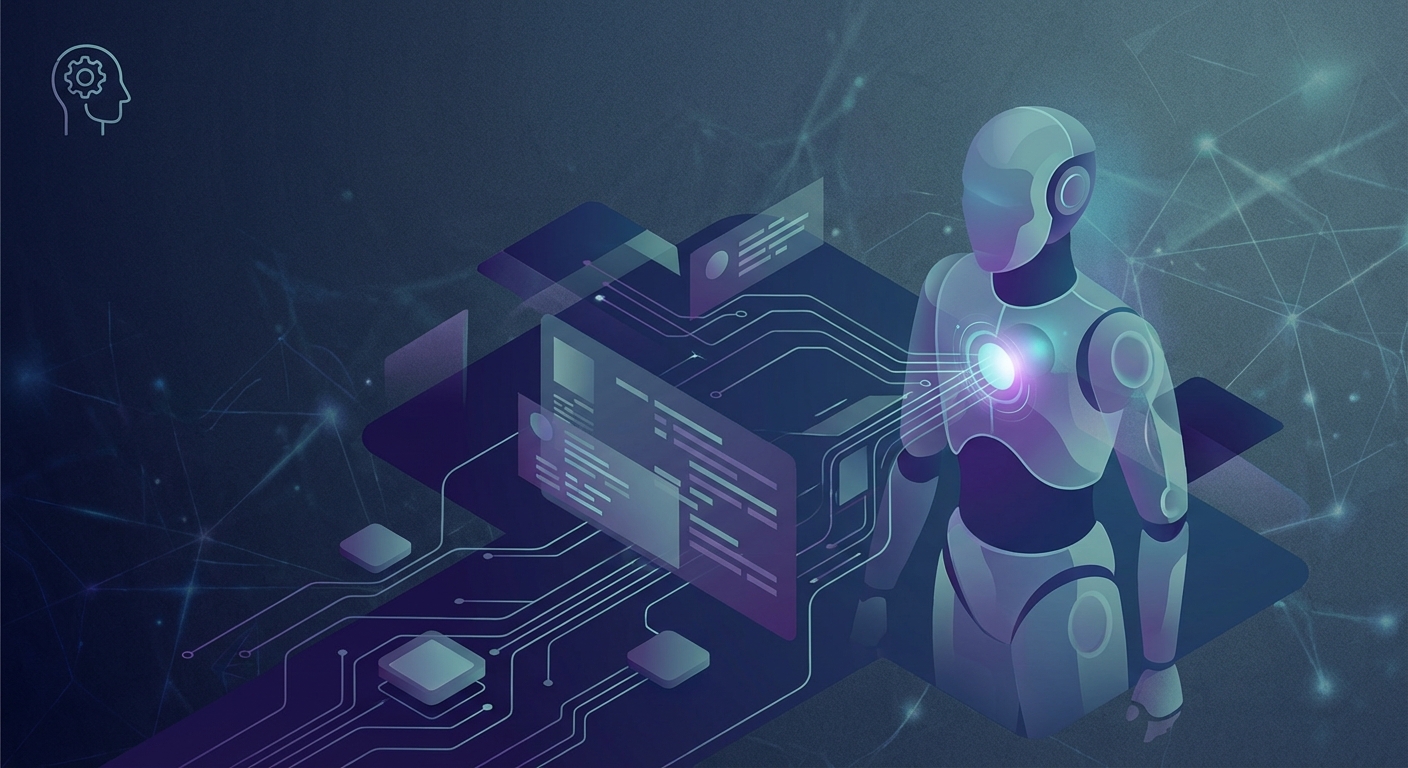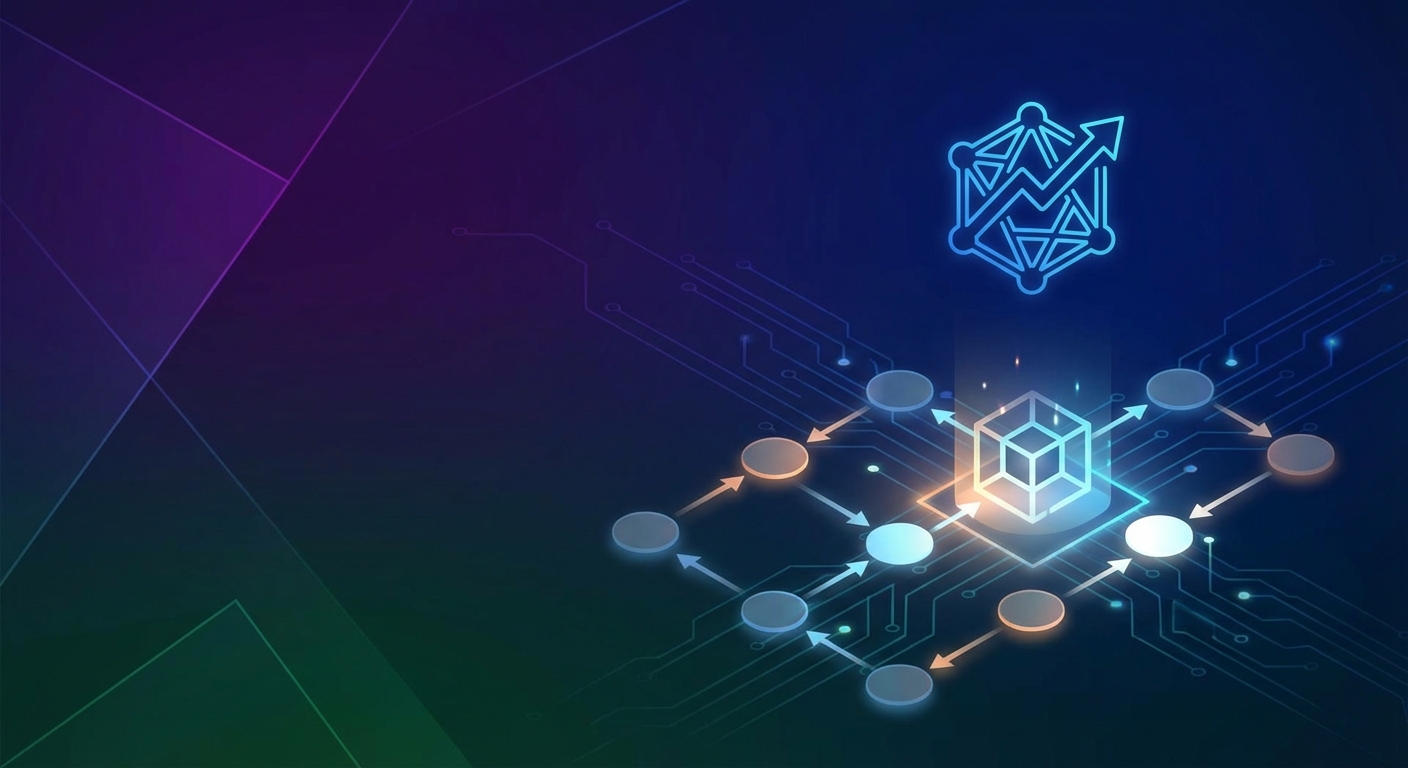An Introduction to Bayesian Programming
TL;DR
- This article covers the fundamentals of Bayesian programming, showcasing its relevance in ai agent development. We explore how it aids in decision-making under uncertainty, enhances ai agent security through probabilistic reasoning, and enables more robust and adaptable agent behaviors, especially useful in enterprise ai solutions.
What is Bayesian Programming?
Okay, so you've probably heard about ai doing all sorts of crazy things – but have you heard about Bayesian programming? It's not your average if-then-else kinda coding. It's a whole different ballgame, really. Traditional programming is deterministic, meaning it follows exact instructions. Bayesian programming, on the other hand, lets computers reason about uncertainty using probabilities.
Bayesian programming, at its core, is all about handling uncertainty with, like, probabilities. (Bayesian Statistics: A Powerful Tool for Uncertainty Modeling) Instead of saying something is true, you say there's an 80% chance it is, which is way more realistic in most situations, wouldn't you agree?
It uses Bayes' theorem. (Bayes' theorem - Wikipedia) That's how it updates its beliefs as new evidence comes in. Imagine you're trying to figure out if a customer is likely to churn. At first, you might think there's a 50/50 chance. But then you see they haven't logged in for a month. Bayesian programming lets you adjust your belief based on that new info.
It's different than normal coding. Traditional programming is all about being deterministic. (Traditional Programming vs Machine Learning - insightsoftware) You tell the computer exactly what to do, and it does it. Bayesian programming is more about letting the computer reason about uncertain situations.
It's really useful when you don't have all the facts. Which, let's be honest, is always in the real world. Think about medical diagnoses. Doctors don't always know exactly what's wrong with a patient right away. They use Bayesian reasoning to weigh different possibilities based on symptoms and test results.
Alright, so Bayes' Theorem – it looks a bit scary, but it's not that bad. Here's the formula:
P(A|B) = [P(B|A) * P(A)] / P(B)
Let's break that down:
- P(A|B) is the probability of A given B (posterior). Basically, it's what you want to know after you've seen some evidence.
- P(B|A) is the probability of B given A (likelihood). How likely is the evidence if your hypothesis is true?
- P(A) is the prior probability of A. What did you think before you saw any evidence?
- P(B) is the prior probability of B. This is the overall probability of the evidence occurring, regardless of your hypothesis. It's crucial for normalizing the posterior probability.
Basically, it tells you how to adjust your beliefs (prior) based on new evidence (likelihood) to get a more informed belief (posterior). Here's a mermaid diagram to help illustrate:
ai agents often operate in uncertain environments, so Bayesian programming is super useful. I mean, think about a self-driving car. It has to make decisions based on sensor data that might be noisy or incomplete.
It allows agents to reason about probabilities. It helps make informed decisions even with incomplete data. Imagine an ai agent trying to predict whether a customer will click on an ad.
It's great for things like risk assessment, anomaly detection, and predictive analytics. In the financial industry, bayesian programming can be used to detect fraudulent transactions.
Plus, it helps agents learn and adapt as they gather more information. It's not just about making a one-time decision. It's about continuously improving their understanding of the world.
So, Bayesian programming is pretty important for ai agents. It lets them deal with uncertainty, make informed decisions, and learn from experience.
Bayesian Programming in AI Agent Development
Okay, so you're building an ai agent? Cool! But how do you make sure it's not just smart, but also, like, secure? That's where Bayesian programming can really shine.
Bayesian methods are actually super useful for making ai agents more secure. Instead of just reacting to threats, they can kinda predict them. It's all about probabilities, you know?
By modeling threats and vulnerabilities as probabilities, you're giving your agent a way to understand the risks it faces. Think of it like this: instead of just knowing that a certain type of attack exists, the agent knows how likely that attack is, and what the potential impact could be. This probabilistic understanding allows for more nuanced security responses, like prioritizing defenses against high-probability, high-impact threats rather than a blanket approach.
Agents can then use these models to assess risk and respond to potential attacks more effectively. It's not just about blocking everything. It's about prioritizing the most likely and most dangerous threats. So, it can focus its resources where they matter most.
And anomaly detection? It becomes way easier! Because it's all about identifying unusual patterns that deviate from expected probabilities. If something's happening that shouldn't be, the agent can flag it right away. It's like having a super-sensitive alarm system that only goes off when something's really wrong.
ai agents are constantly making decisions, and let's face it, the future is never 100% clear. Bayesian programming helps them navigate that uncertainty.
ai agents often face decisions where the outcomes are uncertain. I mean, that's just life, right? But instead of just guessing, Bayesian programming allows agents to weigh different options based on their probabilities and potential consequences.
This leads to more informed and rational decision-making, even in complex scenarios. It's not about being perfect. It's about making the best decision possible with the information you have. It's like playing poker – you don't know what cards the other players are holding, but you can still make smart bets based on the odds.
Think about a self-driving car – it needs to make decisions based on probabilities of what other drivers might do. Will that car in the next lane change lanes? How likely is that pedestrian to step into the street? Bayesian programming helps the car make those split-second decisions that can save lives.
So, where does all this actually get used? Here are a few examples to get your brain going:
Fraud detection: Identifying fraudulent transactions by analyzing patterns and probabilities. You know, like when your credit card company calls you to ask if you really bought that giant TV in another state. They're using probabilities to figure out if something's fishy.
Medical diagnosis: Assisting doctors in diagnosing diseases by considering symptoms and medical history. It's not about replacing doctors, but about giving them another tool to help them make the right diagnosis.
Spam filtering: Classifying emails as spam or not spam based on the probability of certain words or phrases appearing. Honestly, where would we be without spam filters? Probably drowning in emails about cheap medication and Nigerian princes.
Predictive maintenance: Predicting when equipment is likely to fail based on historical data and sensor readings. This is huge for industries like manufacturing and transportation, where equipment failures can be super expensive and dangerous.
So, Bayesian programming is all about giving ai agents the ability to think probabilistically, make smart decisions under uncertainty, and learn from experience.
Practical Applications in Enterprise AI Solutions
So, you're probably wondering where all this Bayesian programming stuff actually gets used, right? Well, it's not just some fancy theory – it's solving real problems for businesses every day, and it's helping drive digital transformation.
Bayesian programming can automate complex business processes by enabling ai agents to make decisions based on probabilistic models. It's like giving your agents a crystal ball, but instead of magic, it's math. This can improve efficiency, reduce costs, and free up human employees to focus on more strategic tasks. Think about automating customer service inquiries – instead of having a human answer every single question, an ai agent can use Bayesian programming to figure out the most likely answer based on the customer's history and the context of their question.
Or, consider managing supply chain logistics. An ai agent can use Bayesian programming to predict potential disruptions, such as weather delays or supplier issues, and adjust its plans accordingly. It's like having a super-smart logistics manager that can anticipate problems before they even happen. And, honestly, who wouldn't want that?
Bayesian methods are great for risk assessment 'cause they allow you to quantify and manage uncertainty. That's a big deal, especially in today's world where things are constantly changing. Ai agents can use these methods to monitor compliance with regulations and identify potential risks before they become problems. It's like having a watchdog that never sleeps, always looking for potential dangers.
This is particularly important in industries like finance and healthcare, where the stakes are high and the regulations are strict. Imagine an ai agent monitoring financial transactions for fraud. By using Bayesian programming, it can identify unusual patterns and flag them for further investigation. It's not about catching every single fraudulent transaction – it's about catching the ones that are most likely to be fraudulent, and preventing them from causing serious damage.
Bayesian programming can personalize customer experiences by tailoring recommendations and offers based on individual preferences and behaviors. ai agents can use probabilistic models to predict what customers are likely to want and provide them with relevant information. It's like having a personal shopper that knows your style better than you do.
This can lead to increased customer satisfaction and loyalty. I mean, who doesn't love getting recommendations that are actually relevant to their interests? Think about an e-commerce platform that uses Bayesian programming to recommend products to customers based on their past purchases and browsing history. It's not just about showing them random products – it's about showing them products that they are actually likely to buy. Here’s a basic example:
So, Bayesian programming is already shaking things up across different areas, and it's only going to become more important as ai becomes even more integrated into our daily lives.
Challenges and Considerations
Okay, so Bayesian programming sounds pretty cool, right? But it's not all sunshine and rainbows – there's some stuff you gotta think about before diving in headfirst. Trust me, I've seen folks get tripped up on these things.
Bayesian programming loves data, like a caffeine addict loves coffee. You need a good amount of it to build those probabilistic models. And it can't just be any data. It needs to be relevant to what you're trying to predict. Think of it like this: if you're trying to predict customer churn, you need data on their past purchases, website activity, customer service interactions, and stuff like that. You can't just throw in random data about the weather and expect it to work – unless you're selling weather insurance, I guess?
Now, here's the kicker: if your data is incomplete or, even worse, biased, it can totally mess up your models. Imagine training a fraud detection model on a dataset that only includes fraudulent transactions from one particular region. It might become super good at detecting fraud in that region, but completely fail to catch fraud in other regions. I've seen that happen, and it's not pretty.
Data quality is super important. I can't stress this enough. Garbage in, garbage out, as they say. You need to make sure your data is accurate, consistent, and up-to-date. Otherwise, your Bayesian models will be about as useful as a chocolate teapot.
Alright, let's talk about horsepower. Bayesian methods can be computationally intensive, especially when you're dealing with complex models and large datasets. I mean, we're talking about a lot of calculations here. It's not like running a simple Excel spreadsheet, you know?
So, you might need some serious hardware to make it all work in real-time, especially if you're building something like a self-driving car or a high-frequency trading system. And it's not just about the hardware – you also need efficient algorithms. There's no point in having a super-fast processor if your code is slow and clunky.
Optimization is key, folks. You need to find ways to speed things up, whether it's by using parallel processing, or by simplifying your models. I mean, nobody wants an ai agent that takes forever to make a decision, right? I sure don't.
Here's a thing that some people don't realize: Interpreting Bayesian models can be tricky, especially if you're not a data scientist. It's not always obvious why the model is making certain predictions. You need to be able to explain it to stakeholders, especially if you're using it to make important business decisions.
You need to be able to explain why the model is making certain predictions and how it's arriving at those conclusions. Otherwise, people won't trust it. And if people don't trust it, they won't use it. I've seen models get shelved because nobody could understand them, and it's a real waste of time and effort. Using simplified visualizations, focusing on key drivers, or providing confidence intervals can help make these models more accessible.
Transparency is super important for building trust. People want to know that the ai agents are making decisions based on reason, not just magic. So, you need to be able to show them the data, the models, and the reasoning behind the predictions.
So, yeah, Bayesian programming isn't always easy – but it's definitely worth it if you're willing to put in the effort.
Conclusion
So, you've made it to the end, huh? Hopefully, this has given you a good peek into the world of Bayesian programming and how it's being used to make ai agents smarter – and more secure. It's not just some academic exercise; it's actually shaping the future of how machines think.
- It's all about embracing uncertainty. ai agents don't live in a perfect world, so Bayesian programming gives them the tools to reason with probabilities, not just absolutes. Think of it as teaching them to be realistically optimistic.
- It's super useful in dynamic environments. The world is constantly changing, and Bayesian programming allows agents to adapt and learn as new information comes in. It's like giving them a built-in upgrade system that never stops learning.
- It's not a silver bullet. As we've discussed, you need good data, you need processing power, and you need to be able to explain your models. But hey, nothing worthwhile is ever really easy, is it?
Bayesian programming is poised to become even more critical as ai agents become more sophisticated and integrated into our lives. So, keep an eye on this space – it's gonna be interesting.





